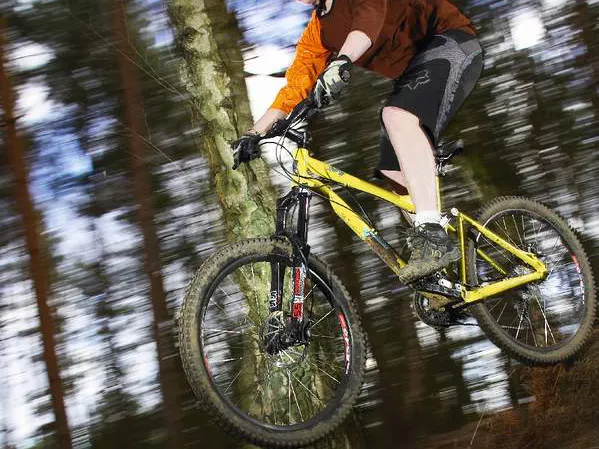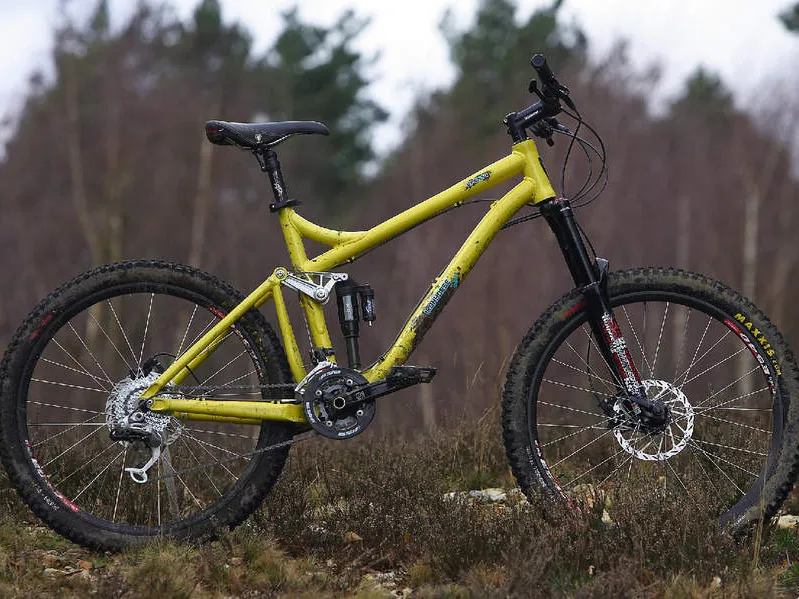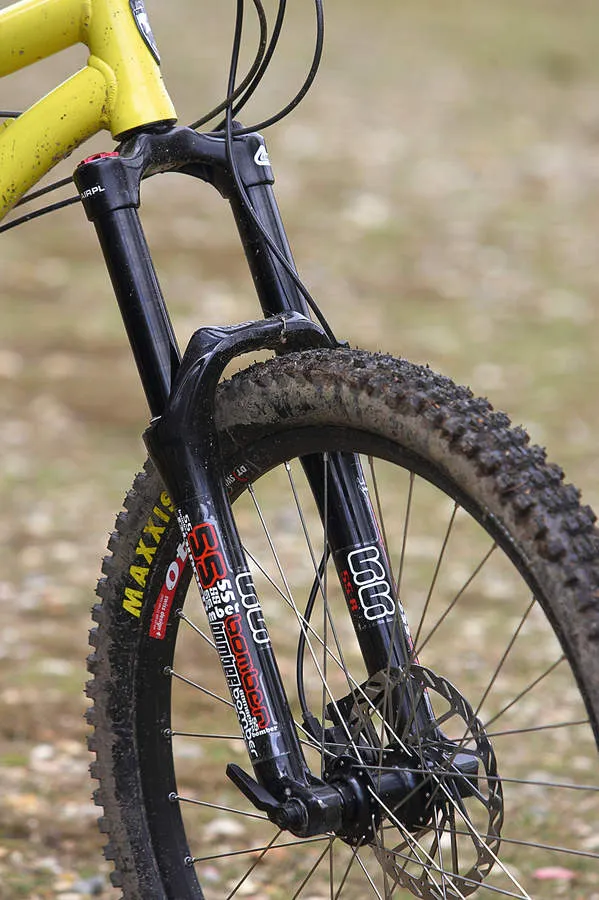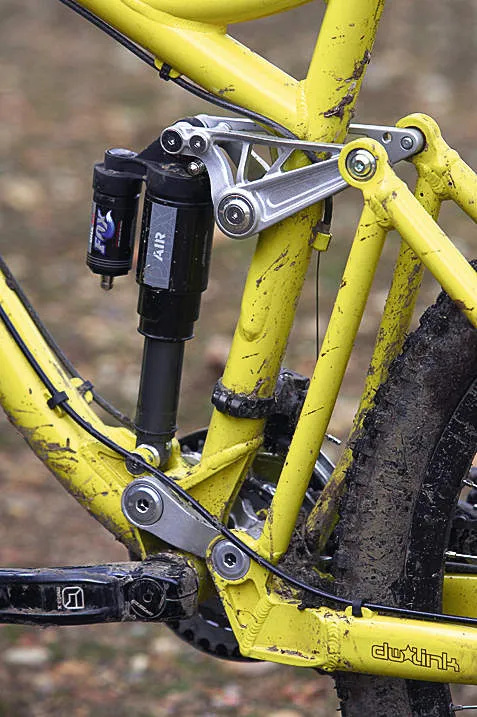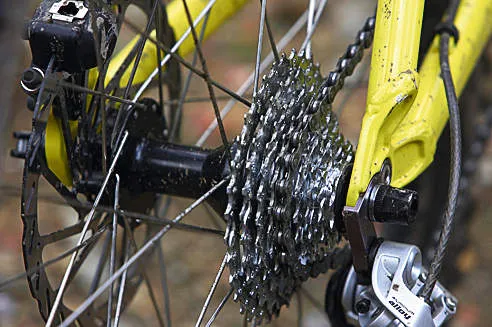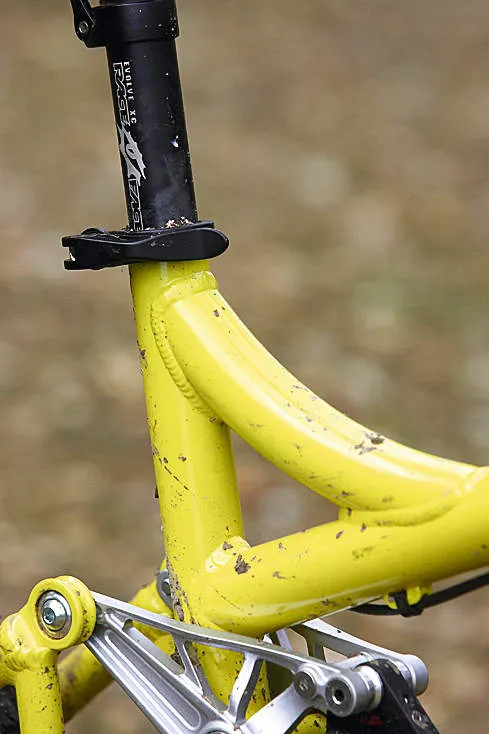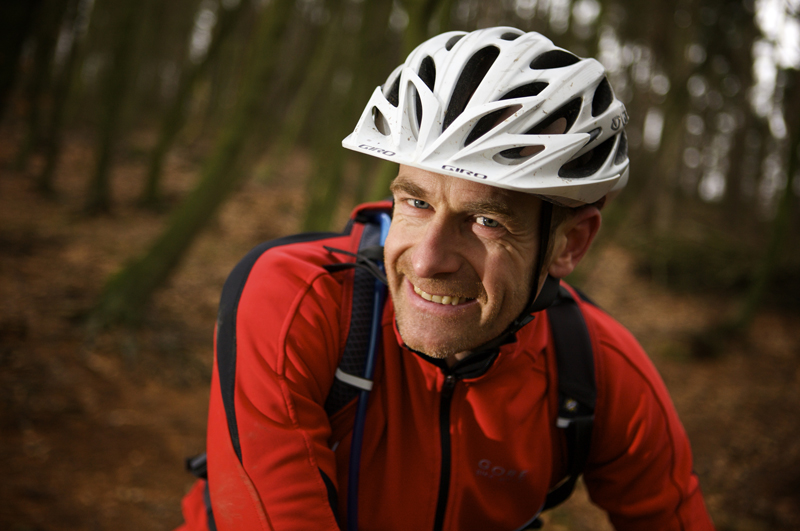The Iron Horse Sunday has been a truly dominant downhill bike under Sam Hill, and the 6Point4 could potentially take that same performance onto the trail. You’ll need to clear up some cross-country kit compromises first though.
On the upside, the 6Point4 boasts great DW link suspension action in a well-balanced frame. Some quality gravity kit in the package hints at huge hooligan potential. However, the cross-country stem length chokes that potential and the value for money factor of the spec is a bit low.
Ride: all-rounder spec
Iron Horse have put on a cross-country/all-mountain length stem to add a bit of breathing space for climbs, and more cross-country-bred riders will feel at home on the trail. But there’s no doubting that it neuters the handling and responsiveness in the extreme situations that the bike otherwise has the potential to really shine on.
In fact, it’s a great tribute to the chassis and dynamics of the DW link suspension that we coped with the slightly curious choice of stem as well as we did. DHX Air shocks aren’t the most consistent feeling cans in the world, but the 6Point suspension dropped, cornered and ploughed through boulder fields superbly. Even when the shock was probably using too much mid-stroke, the DW link action meant it didn’t slow down or fudge braking or pedalling response, and it never once bottomed out harshly.
The fact that we felt absolutely no need to fiddle with the shock settings also left our heads clear to concentrate on the important issue of what we were going to do to the trail, not what the trail was going to do to us.
The Marzocchi fork does needs a bit more TLC and consideration, though. If you attempt to really hammer it through multi-hit sections it starts shuddering, clanking and coughing up control pretty soon, but keep your weight back and nose light and you’ll cope just fine.
The superb pedal response of the DW system meant that despite being the heaviest bike on test, the Horse outclimbed everything else with pretty contemptuous ease, and hustled flat sections far better too.
There’s only so much cross-country work you can enjoy/endure on a 16.3kg (36lb) bike with downhill tyres however well it pedals, and this bike is just gagging for a shorter stem to enable it to play properly.
Frame: beefed up and broad
We’ve certainly no complaints about the chassis. The curved hydroformed tube front end joins into a lower pivot shock mount and bottom bracket that’s all one big anchor piece. The front of the rear end follows the same keystone concept and an extra wide 83mm bottom bracket shell means the broad vertical arms of the rear subframe can thread neatly between the tyre and the front mech/chain. The extra width also gives better tyre/chain clearance when you’re grinding back up a muddy trail in the granny ring.
At the far end, a downhill-width, 150mm bolted axle gives extra space and strength. This means that while the 6Point4 was the only bike we managed to loosen a linkage bolt on, it only happened once on the first ride.
While the 19in frame we had as a sample looks a bit of a gate and standover is relatively tall, it’s still spot on in terms of reach and angles for really ripping the descents, too.
Iron Horse is the only manufacturer to have switched to full downhill standard bottom bracket and wheel widths in this test. By spacing the bearings further apart you get two big advantages. Presuming the axles themselves aren’t flexy, you increase the strength of the cranks, hubs and frame. You also up the clearances between chain, tyre and the frame itself. The downsides are extra weight and a narrower range of upgrades.
Equipment: slightly down for the money
As a relatively small company, Iron Horse will always suffer slightly in direct spec comparisons.
For a start, you’re getting the cheapest of Marzocchi’s 55 forks here, which is clear in the slightly notchy stroke and occasional top out of its adjustable, rebound-only damping. While they’re a theoretical downgrade, the SX-5 shifters don’t feel any different to SX-7, and you’re not going to be too out of pocket if you rip the rear mech off. FSA’s chunky chainset benefits from the broader bottom bracket shell stiffness too.
While the anonymous hubs are an unknown quantity the Maxxis Minion front tyres at either end are a great choice for hardcore UK use. They’re fast-rolling enough to get you back up/along the trail to the action without killing you, but they carve with real confidence in a wide range of trail conditions. Their ability to splat through rockeries at low pressures compensates for their hefty overall weight.
We would definitely go for bigger disc rotors if you’re going to start proper downhill work on this bike though, as well as re-bleeding with DOT 5.1 if you’re planning to head Alp-wards.
It’s the finishing kit that really puts a spanner in the gravity end of the works though.
Want to ride this bike at the UK National Demo Series? Go to the online booking site to sign up to your free ride now!

